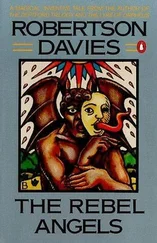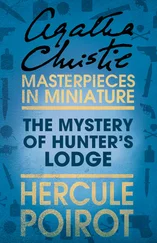But he still much preferred driving, always willing to drive anything, anywhere at any time. One evening in 1974, when he was just twenty, they got an urgent order to take a load down south, to Wisbech. Edward said he would do it, even though, at that stage, he had never driven further than Scotch Corner in a truck. He didn’t, of course, have an HGV licence, nor access to any heavy vehicle, so he went off in a small seven-and-a-half-ton truck which they used for delivering fertilizers on local farms. Just to complicate things, or give himself some company, he took with him his young brother William, then aged twelve.
Halfway down the A1, Edward realized he was running out of diesel fuel, with no service station in sight. A few miles later, his truck packed up completely. ‘I sat on the verge of the Al with my head in my hands in a state of panic. I didn’t know what to do next. It was now well after midnight – and I had a young boy to worry about as well as myself.
‘I got out and decided to hitch a lift for help. A furniture van picked me up and took me about ten miles to a transport caff where he said there might be some lorry drivers. As he drove into the caff, the top of his furniture van hit the filling station canopy outside the caff and tore bits off it. Oh no, I thought, all the damage I’m doing by having been so stupid. The driver dropped me off and reversed out quickly.
‘There were six international lorry drivers inside, all from the same firm, all driving Seddons and, by chance, they had a mechanic. They said when they’d finished their tea, they’d come and help. Luckily, they were going my way. It was about two o’clock by now. I’d left William on his own in the truck for about an hour-and-a-half.
‘The mechanic bled my engine for me, which you have to do when you run out of fuel. He then filled it up with enough diesel to get me to the next garage. I offered them money, but they refused. All they said was that one day I might pass one of their lorries, parked up, and it would then be my turn to help them …’
By the age of eighteen, Edward’s father was paying him £9 a week. He still kept his savings in his pocket, which meant that, by the time he had passed his driving test, he thought he had enough to buy himself his own car.
One day, after finishing off some lime-spreading on a farm just outside Carlisle, Edward was driving down Currock Road, Carlisle, in his tractor when he passed a garage. On the forecourt was parked a brand-new Mini Clubman. A loud notice shrieked its price, only £820.
Edward stopped his tractor and went into the garage. The proprietor was sitting at his desk in his office, smoking a cigar. ‘I w-w-w-want to buy that car, yon’un car out front,’ said Edward slowly, pronouncing his words as well as he could.
‘You need money to buy cars, lad,’ said the garage owner, swinging back and forth on his chair, without bothering to get up.
‘I’ve got some money,’ said Edward.
‘Can’t you read, lad?’ said the garage man. ‘That car costs £820. In money.’
Edward was wearing a filthy woolly hat, filthy working clothes, was covered with slag and lime and clearly didn’t look as if he had a penny. His youth and stammer did not improve the general impression. He looked very much to the garage man like a potter – a Carlisle expression that does not mean one who makes pots, but someone fairly scruffy, who might be a tramp or a dosser.
In his packed little pocket that day, Edward had £1000 – all in cash. His life savings from his short life so far. He pulled some of it out to demonstrate to the garage man that he was a person of some substance. The garage man immediately got up from behind his desk, put down his cigar and assumed his best customer-relations smile. After some discussion, Edward, by promising cash, all of which he said he had on him, got the price down to £780.
So Edward had wheels; a young man with transport, able to go into dances in Carlisle of a Saturday night, and able to offer lifts home to young ladies, which he did, but only now and again, as he was working so awfully hard at weekends.
He got his Mini Clubman and most of his subsequent cars serviced in Hesket, in the village garage owned by Richard Woodcock, which stood right in the middle of the village, in what was the ancient market cross. In 1972, Richard’s sixteen-year-old sister, Anne Woodcock, came to work for Eddie in his office, typing letters and invoices; her first job after leaving school.
Anne Stobart, Edward’s big sister, the clever one who had gone to grammar school, had been working with her father as his secretary until then. She moved over to work in the farm shop in Wigton once young Anne Woodcock had settled into her job.
‘My mother had just died,’ says Anne Woodcock, ‘and Eddie and Nora were really kind to me, giving me the job, looking after me. I was with them for two years. My wage was about £15 a week and I think at the time they had ten vehicles altogether. It was mainly agricultural work, lime-spreading and slag, but they did do quite a bit of haulage. I remember when they secured some sub-contract haulage work from Barnett and Graham: that was a big event.
‘I knew the family were strong Methodists; Eddie and Nora and Anne. Every year at Keswick Convention time, they would talk about it, perhaps hoping I might go with them. I’m Catholic by birth, so it wasn’t really my thing. But they were very tolerant really. Other members of their family were much stricter.’
Anne enjoyed working with the two Stobart boys around, as John and Edward were just a few years older than herself. ‘Edward and John were just normal farm boys. Like most of the others in Caldbeck and Hesket, they’d go for a drink on a Saturday night in Hesket or Caldbeck, or into Carlisle to the dance at the Cosmo – the Cosmo was where all the country boys went. I went there as well.
‘At work. I have to say, I wasn’t aware of Edward running anything, of being in charge in any way. He did most things in the business, but Eddie the father seemed to me definitely the boss.
‘I was impressed by how Edward coped with his stutter. William’s was far worse, so much so that often he couldn’t talk at all, but Edward never let his get him down. He was determined to carry on as normal. Edward didn’t lack confidence, I’ll say that, but I have to say I had no idea he would go further than he’d got to already. When I worked with the Stobarts, it was just a small family business. And it seemed as if it always would be like that.’
During the two years Anne worked with the Stobarts, Edward had a rather nasty accident. Aged eighteen, he was working as usual one Saturday morning, up at six to start lime-spreading. Having finished, he came back to the yard in the late afternoon where he met Clive Richardson, one of their drivers, who had come into the yard to pick up something.
Edward asked Clive if he had got the message about his Monday job, one which Edward had personally fixed up for him on Friday. He’d given all the details to his father, to pass on to Clive.
‘Oh he cancelled it,’ said Clive. ‘I’m not working Monday.’
‘Why not?’ asked Edward.
‘I’d forgotten my wagon needs four new tyres. So I’m going to do that on Monday instead.’
Edward went straight to the phone and rang Barnett and Graham, the firm through which the job had come. He cancelled the cancellation, saying a Stobart truck would be there after all to do the job, and not to worry.
Edward then searched around the yard and eventually found four half-reasonably tyred wheels, which he thought were good enough to go on the truck, an Atkinson 240.
‘My dad wasn’t around, of course; he never was on a Saturday. I think that day he’d gone to Wigton to see how the shop was doing. Clive, the driver, was a bit disgruntled at first, as he was in a hurry to get home, but he agreed to help me get the old wheels off.’
Читать дальше












